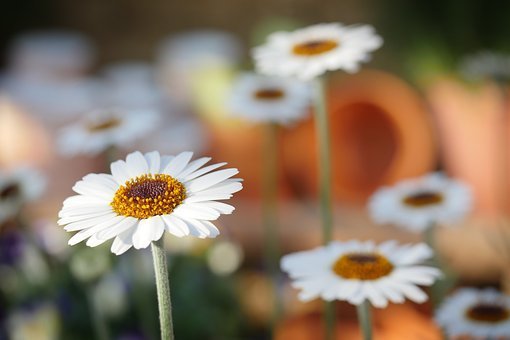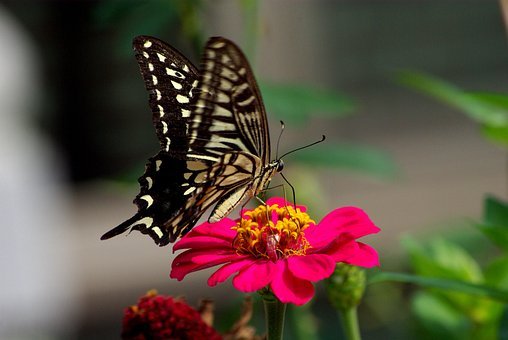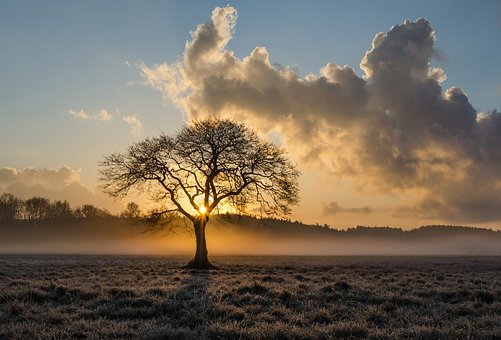Nature provides many vital services, such as water purification and carbon sequestration. But why do we not value it more for these things?
Below the high tide mark on a sandy beach it’s barren, the only apparent life being the small sand-hoppers that jump around like cartoon fleas in the washed-up seaweed. Above the high tide zone the gentle gradient suddenly steepens. This is the fore-dune, and it exists because of the action of the tall, sharp, marram grass dotted around you. At the peak of the dune, the marram grass covers the sand completely, continuing its domination down the other side of the slope.
As you move from the shore, other plants become apparent: sand sedge, red fescue, creeping bent, clovers, vetches, creeping willow. The pale yellow of raw sand changes to the light greyish brown of soil because of the build up of organic matter. This build up allows more plants to thrive and the soil to retain more water.

Natural Succession
This basic process of succession in sand-dunes is familiar to many people from school science, but one aspect is often overlooked. Natural processes have provided humans with this grazing land, flood defence and natural beauty for free. An investment has been made on our behalf and is providing us with a dividend, but when economic decisions are made this understanding seems to be absent.
Private Services and Public Services
We need hospitals, schools, roads, police and our rubbish collected. We also need a roof over our heads, water, electricity, and heating. We are aware that we need these things, and we are aware that we pay for them, either indirectly through taxation or directly from our own pocket.
We do not need the Mona Lisa, the Elgin Marbles, ballet, public libraries or sports. However, we are aware that these things enrich our lives and our societies. These things are not necessary, but they are important.

What is nature?
We do not need the Giant Panda or the Black Rhinoceros. Their extinction would not greatly affect human welfare. We are asked to donate money to help conserve rainforest because it is “home to exotic animals such as jaguars, pumas, tapirs, sloths and monkeys, hundreds of species of birds and thousands of species of plants”. Organisations that want our money say that nature is important, but fail to explain why.
These are the things most people think of as “nature”. “Biodiversity” is said to be important, but it’s really only the biodiversity of the rainforest that seems to count. A soil biologist will rave about the biodiversity in a spadeful of soil – more diverse than a rainforest – but no-one cares about microbes, because they are small and boring.
What does nature do for us?
Nature provides us with oxygen to breathe and fresh water to drink. It grows our food and recycles our waste. These are essential environmental services. We know this but we do not truly appreciate it. This is because we have never had to. Our everyday worries are about paying taxes, bills and rent, and wondering if we can afford a holiday. There have always been too few humans in the world to need to worry about where our environmental services come from. That is no longer true.

Environmental Services
Robert Costanza and colleagues published a paper in Nature entitled “The value of the world’s ecosystem services and natural capital” . They said that because of the necessity of ecosystem services “in one sense their total value to the economy is infinite.” However, approaching the problem “at the margin” allowed them to value ecosystem services by “determining the difference that relatively small changes in these services made to human welfare”.
This led to a conservative estimate that ecosystem services were worth US$33 trillion per year. $33,000,000,000,000 a year; then nearly twice the global gross national product. The study identified 17 ecosystem services, such as climate regulation, sediment retention, soil formation and food production. Only two of the seventeen were more high art (nice) than hospitals (necessary), and these were recreation and cultural services.
New York City’s water comes from its watershed in the Catskill Mountains . The filtration provided by the healthy soil in the mountains meant that the water met EPA standards. As the ecosystems of the catchment became degraded, this was no longer true. To meet EPA standards once again, New York City could either build a filtration plant for a minimum of $6 billion, plus $300 million running costs per year; or it could restore the watershed ecology to its former glory and subsidise better sewage treatment, all for a cost of $1-1.5 billion – saving of $4.5 billion.
Natural Capital
When we damage ecosystems on a wide scale we are liquidating our natural capital and using it as if it were disposable income - never sound business sense. Often however, no-one owns the natural capital and hence few people will jealously protect it and allow it to accumulate, as is the case with traditional forms of capital. The financial benefits of investing in natural capital are currently minimal as there is not a developed market and ownership is often problematic or non-existent. If carbon trading becomes all it is often claimed to be that may change, as a growing forest will have monetary value by virtue of it growing and becoming a carbon dioxide sink.
As Adam Smith would have it, “frugality increases and prodigality decreases the public capital… [an increase in] public capital conduces more to the growth of public opulence”. A man who spends his money on durable commodities as opposed to a “profuse and sumptuous table and a great number of menial servants” will surely be better off in the future.
Perhaps we should invest our money in some durable ecosystems instead of drawing down our capital for today’s sumptuous spread. Natural capital, especially when it is not producing saleable commodities, is truly the most public of capitals and as such has a greater effect on the public opulence than any other kind.

So, plant a tree and earn some interest. Consider it an investment.
Image credits: Pixabay.com
definition of nature:
So, if not human creations, who created nature or how was nature created?
If it was not created by God and as in the Holy Bible:
Why is nature good as it is? What should guide human creation / alteration so that some are good and not others?

Great Post @carver, I See & Enjoyed. Thanks For Sharing. Don't Forget To Check The Best Post Of @worktrades>*"LITTLE FISH MUST HELP LITTLE FISH"*
La hermosura que creo Dios Grande y Poderoso y nosotros mismos nos encargamos de destruirla y no nos damos cuenta que preservar la naturaleza es preserva la existencia humana... Cuidar no cuesta nada... destruir si porque después cuesta recuperarla...!